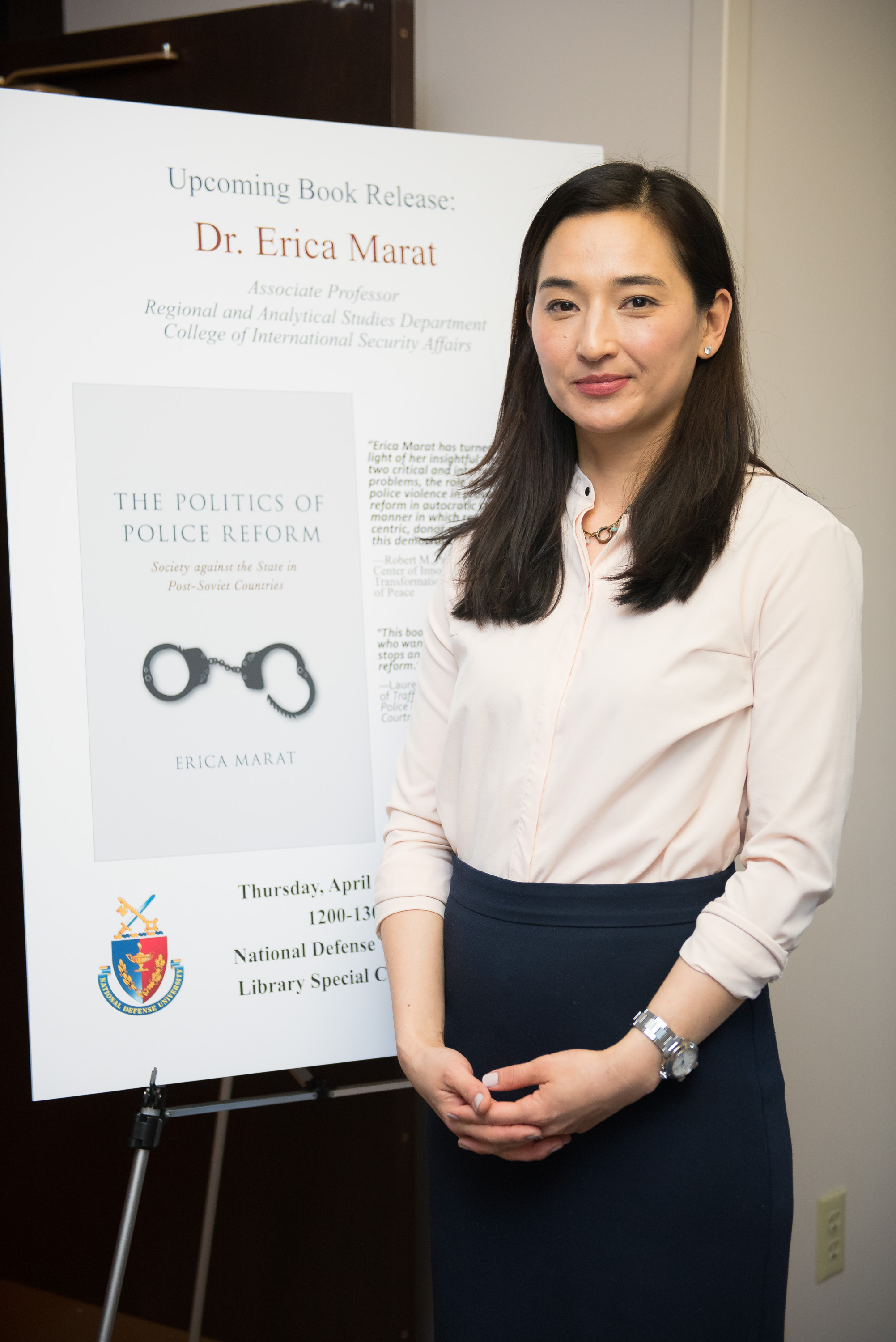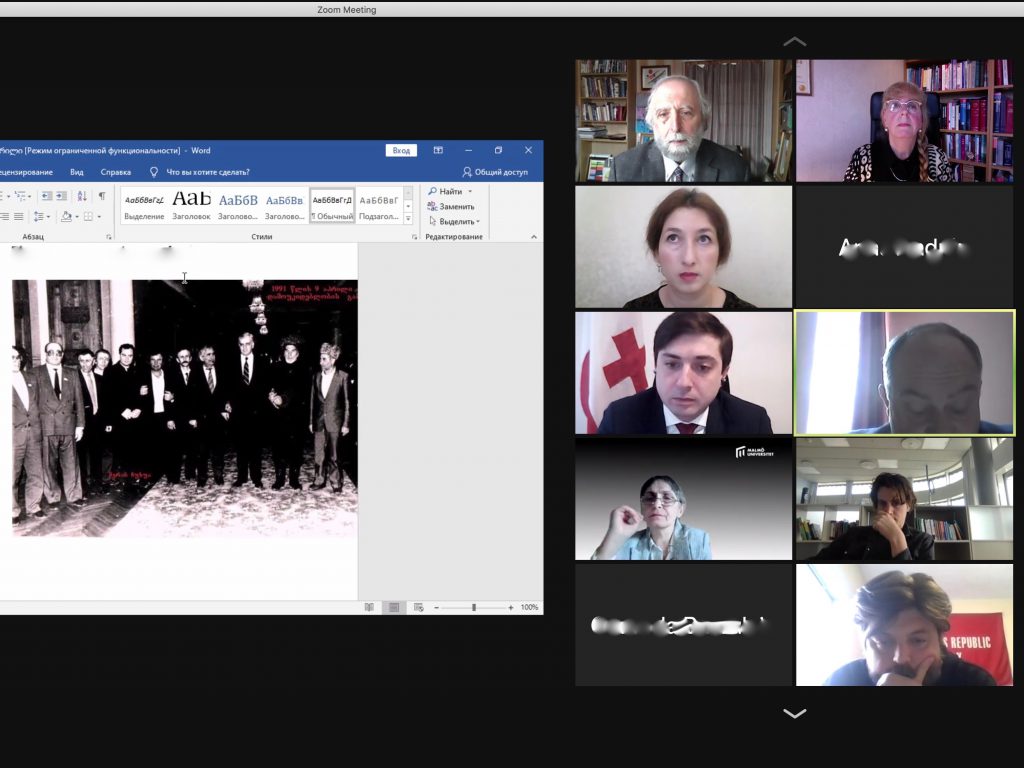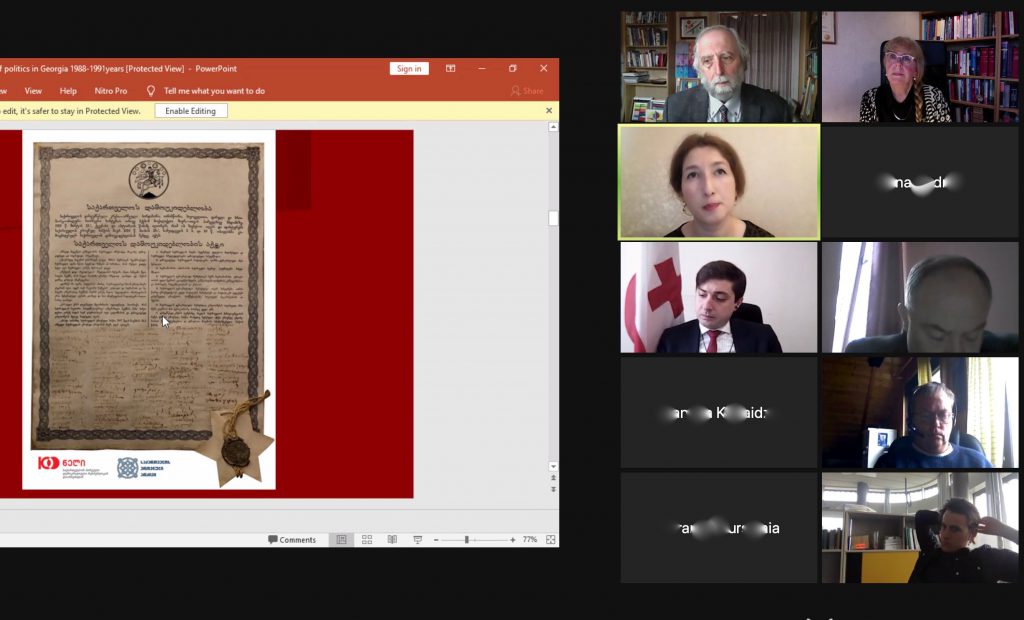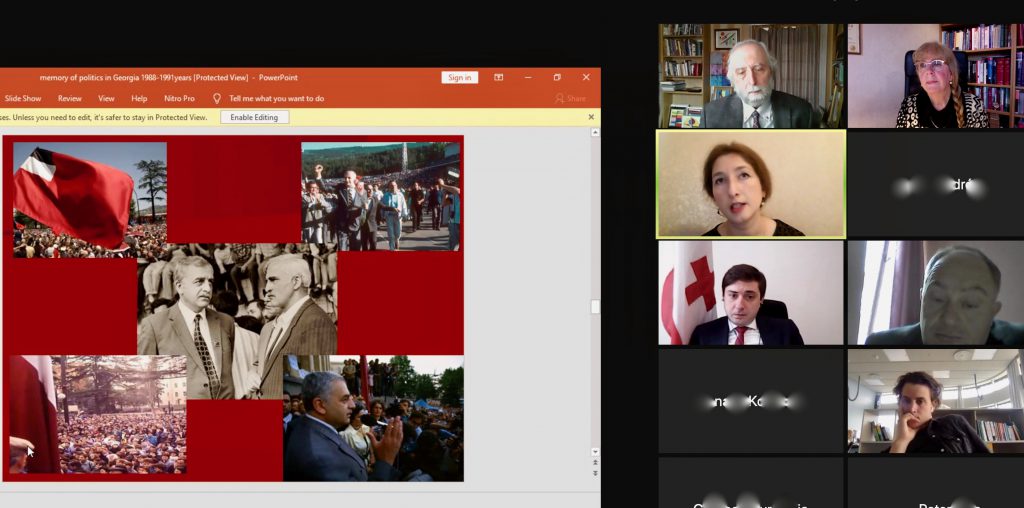
February 15: Georgia’s 30 years from regaining the independence: accomplishments, challenges and opportunities
RUCARR seminar with Victor Kipiani, chairman of the think tank Geocase: Georgia’s 30 years from regaining the independence: accomplishments, challenges and opportunities. Welcome!
When: February 15, 3.15-5.00 (CET)
Where: Sign up here for zoom link
Short bio
Victor Kipiani is the Chair of a Georgian think tank organization Geocase. His interests include international relations, security, governance, implications of the global order for Georgia and for its neighborhood and macro economy. Victor Kipiani is the author of various articles and surveys on Georgian legal system and related matters in domestic and foreign periodicals. He is also a frequent commentator on recent political developments in Georgia as well as on various global geopolitical trends and events. Victor Kipiani is a member of Georgian Bar Association, a member of International Advisory Board for the Association of International Politics and Security Studies, a board member of the Independent Directors’ Association, and an advisory council member at the Service for Accounting, Reporting and Auditing Supervision Service.



 Seminar with Dr. Astrid Hedin,
Seminar with Dr. Astrid Hedin,  Dr Rico
Dr Rico  Welcome to the RUCARR seminar with Prof. Vello Pettai, University of Tartu: Foresight Scenarios on Populism: Imagining Central and Eastern European Politics in 2030
Welcome to the RUCARR seminar with Prof. Vello Pettai, University of Tartu: Foresight Scenarios on Populism: Imagining Central and Eastern European Politics in 2030 The role of traditional rituals in resisting energy injustice: The case of hydropower developments in Svaneti, Georgia
The role of traditional rituals in resisting energy injustice: The case of hydropower developments in Svaneti, Georgia

 Dr. Marat’s research focuses on violence, mobilization and security institutions in Eurasia, India, and Mexico. During our seminar, she will present her book – The Politics of Police Reform: Society against the State in Post-Soviet Countries. What does it take to reform a post-Soviet police force? Across the region, the countries inherited remarkably similar police forces with identical structures, chains of command, and politicized relationships with the political elite. Centralized in control but decentralized in their reach, the police remain one of the least reformed post-communist institutions. As a powerful state organ, the Soviet-style militarized police have resisted change despite democratic transformations in the overall political context, including rounds of competitive elections and growing civil society. This book explores the conditions in which a meaningful transformation of the police is likely to succeed and when it will fail. Based on the analysis of five post-Soviet countries (Ukraine, Georgia, Kyrgyzstan, Kazakhstan, and Tajikistan) that have officially embarked on police reform efforts, the book examines various pathways to transforming how the state relates to society through policing. It develops a new understanding of both police and police reform. Departing from the conventional interpretation of the police as merely an institution of coercion, this study defines it as a medium for state-society consensus on the limits of the state’s legitimate use of violence. Police are, according to a common Russian saying, a “mirror of society”—serving as a counterweight to its complexity. Police reform, in turn, is a process of consensus-building on the rationale of the use of violence through discussions, debates, media, and advocacy.
Dr. Marat’s research focuses on violence, mobilization and security institutions in Eurasia, India, and Mexico. During our seminar, she will present her book – The Politics of Police Reform: Society against the State in Post-Soviet Countries. What does it take to reform a post-Soviet police force? Across the region, the countries inherited remarkably similar police forces with identical structures, chains of command, and politicized relationships with the political elite. Centralized in control but decentralized in their reach, the police remain one of the least reformed post-communist institutions. As a powerful state organ, the Soviet-style militarized police have resisted change despite democratic transformations in the overall political context, including rounds of competitive elections and growing civil society. This book explores the conditions in which a meaningful transformation of the police is likely to succeed and when it will fail. Based on the analysis of five post-Soviet countries (Ukraine, Georgia, Kyrgyzstan, Kazakhstan, and Tajikistan) that have officially embarked on police reform efforts, the book examines various pathways to transforming how the state relates to society through policing. It develops a new understanding of both police and police reform. Departing from the conventional interpretation of the police as merely an institution of coercion, this study defines it as a medium for state-society consensus on the limits of the state’s legitimate use of violence. Police are, according to a common Russian saying, a “mirror of society”—serving as a counterweight to its complexity. Police reform, in turn, is a process of consensus-building on the rationale of the use of violence through discussions, debates, media, and advocacy.


